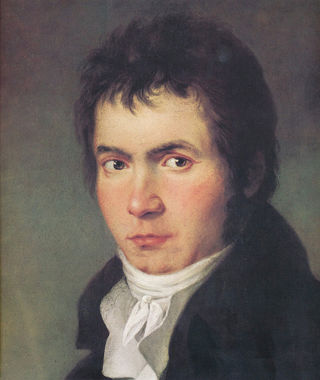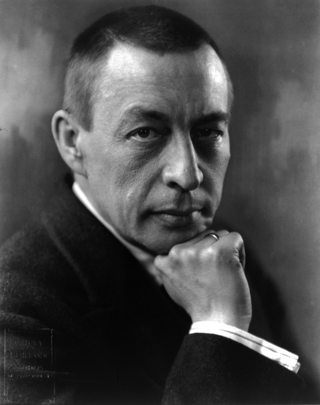
Rachmaninoff Piano Concerto No. 3
Rachmaninoff remains extremely popular as a composer. But at the same time, a kind of condescending attitude continues to linger about Rachmaninoff's music. People say it sounds like movie music, it's too sentimental, etc. etc. In fact, Rachmaninoff's music is as well put together and as innovative as any composer of his time, just in a different way. And the third piano concerto is no exception. Today we'll debunk the myth of Rachmaninoff the mediocre composer, with one of his most brilliant works.
30 Tammi 202055min

Classical Music Changemakers Week: Aubrey Bergauer + Lorenzo Brewer
This week, I'm interviewing 3 people who are making real change in the classical music business. Today, I talk with Aubrey Bergauer, the former Executive Director of the California Symphony, and Lorenzo Brewer, the founder of Nkoda, the Spotify of sheet music. We'll talk about the simple yet radical changes Bergauer made during her tenure, and Brewer's belief in the accessibility of sheet music. I think these interviews will appeal to anyone interested in change, the future, and music itself. https://medium.com/@AubreyBergauer nkoda.com
22 Loka 201955min

Sticky Notes Mailbag!
At long last, it's the Sticky Notes mailbag! I'm joined by a special guest to answer around 20 questions such as, "What is the best way to learn how to compose?" or "Is there a simple explanation in classical music itself for this love that I feel which makes me miss a beat when I listen to it and that can reduce me to tears?" I'll also be answering questions about conducting, programming, musical theory, and much more. I had such a great time doing this, and I hope you enjoy it!
27 Kesä 20191h 2min
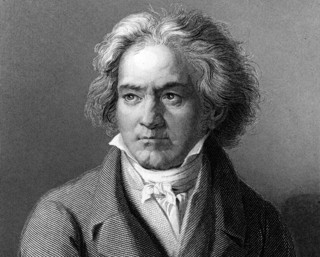
Beethoven String Quartet, Op. 132 (Part 2)
This week we're diving into one of the great movements ever written in Western Music with the slow movement of Beethoven's Op. 132 quartet. This is a movement that explores Beethoven's contradictory religious beliefs, his core optimism despite all that happened to him during his life, and his fascination with religious music. We'll then look at how Beethoven concludes this epic piece, using sketches of music that started out as being part of his 9th symphony, but not in the way you might expect. Enjoy!
13 Kesä 201944min

Beethoven String Quartet, Op. 132 (Part 1)
I've long hesitated to write a show about any of Beethoven's late string quartets. These are pieces that quartets spend the better part of their careers grappling with, struggling with, failing with, and much more rarely, succeeding with. They are some of the most extraordinary pieces of art ever conceived of. 5 quartets, Opus 127, Opus 130, Opus 131, Opus 132, and Opus 135 - all written near or at the end of Beethoven's life, these pieces represent the pinnacle of everything Beethoven achieved, yes, even far beyond his symphonies in this conductors opinion. They explore not only every conceivable emotion, but they dig down into the core of those emotions, defiantly refusing to skim the surface and daring to ask and THEN ANSWER the fundamental questions of life and death. Everyone has a favorite Late Beethoven Quartet, but mine has always been Opus 132, and so this week I'm taking the opportunity of getting a Patreon sponsor request from Maria for a piece of chamber music to take the leap myself into Late Beethoven. We'll discuss Beethoven's situation as he recovered from a life-threatening illness which he was sure was going to be his end, the unusual 5 movement structure of the piece, and this week, the first two movements of the quartet, the first of which, to me, defines everything that Sonata Form can do to express emotion and a narrative in a piece of absolute music.
6 Kesä 201945min
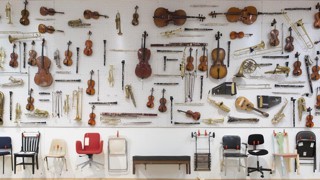
How to Build an Orchestra w/Joshua Roman
I was thrilled to be joined by Joshua Roman, cellist, composer, and curator. The core of our discussion centers on building an orchestra from the ground up. That is, not taking over an existing orchestra, but starting one completely from scratch. How would this look in 2019? Joshua has been thinking about this for years so it was fascinating to hear him discuss this and many other topics. Thanks again for all of our support and here's to another 100 episodes!
25 Tammi 201951min

Deborah Borda, President of the New York Philharmonic
Of all the interviews I've done this year on Sticky Notes, this might be my favorite. I sat down a few weeks ago with Deborah Borda, the new CEO and President of the New York Philharmonic, to talk about the future of not only the New York Philharmonic, but also classical music in general. We also talked about the connections between the artistic and social imperative of a classical music organization, Gustavo Dudamel, and the importance of listening to our communities. This was a truly inspiring conversation, so I hope you enjoy it as much as I did!
21 Helmi 201849min
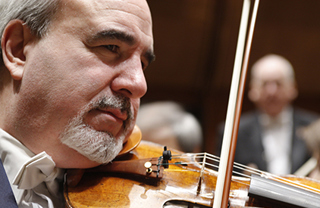
42 Years on the New York Phil Front: A Conversation with Glenn Dicterow
This week on Sticky Notes, I'm really happy to welcome Glenn Dicterow, the former concertmaster of the New York Philharmonic, to the show. Glenn was a concertmaster for an incredible 42 years, giving him thousands of great stories, memories, insights, and thoughts about leading, conductors, violin-playing, and orchestral life. Thanks so much for listening, and I hope you enjoy it!
7 Joulu 201745min
